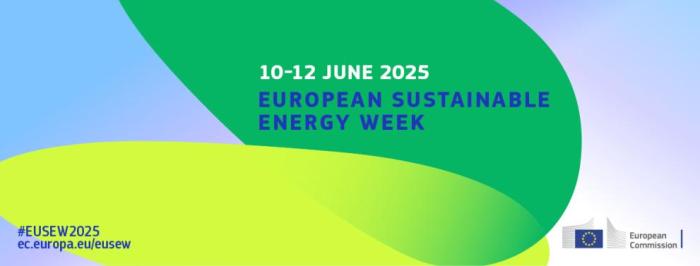
As the 2025 edition of the European Sustainable Energy Week (EUSEW) concluded, the Clean Energy for EU Islands Secretariat made a strong case for a holistic approach to resilience and affordability on Europe’s islands. Speaking during a high-level session on “Housing for Resilient Cities: Empowering Citizens for a Clean Energy Transition”, Kostas Komninos represented the Secretariat and brought the specific realities of island communities to the fore.
In his remarks, Komninos highlighted the often-overlooked issue of affordable housing—a challenge that is often masked by the idyllic image of European islands as tourist destinations. Drawing on insights from the Secretariat team, he detailed several factors that significantly impact the cost of living for permanent and seasonal island residents:
- Seasonal, tourism-driven economies
- High construction and maintenance costs
- Unique geographical and climatic conditions
- Planning, licensing, and construction restrictions
- Locally managed infrastructures with seasonal operation
- High, yet underutilised, renewable energy potential
“Affordable housing on the islands is inseparable from the overall resilience of these communities,” Komninos stated. “This includes not only affordable energy, but also water, waste, transport, and access to digital, health, and education services.”
He called for holistic thinking, planning, and implementation, citing the examples of Astypalea and Tilos—two of the thirty “30 for 2030” islands supported by the Secretariat. Both islands have demonstrated how integrated strategies can deliver tangible results, particularly through the support of Δίκτυο ΔΑΦΝΗ / DAFNI Network in establishing Renewable Energy Communities to combat energy poverty and distribute the benefits of the energy transition equitably.
Komninos also highlighted the Greek national GRecoIslands initiative, which channels EU cohesion funding to 39 small islands—ranging from 100 to 3,500 residents—on the condition that local authorities develop comprehensive strategic plans.
